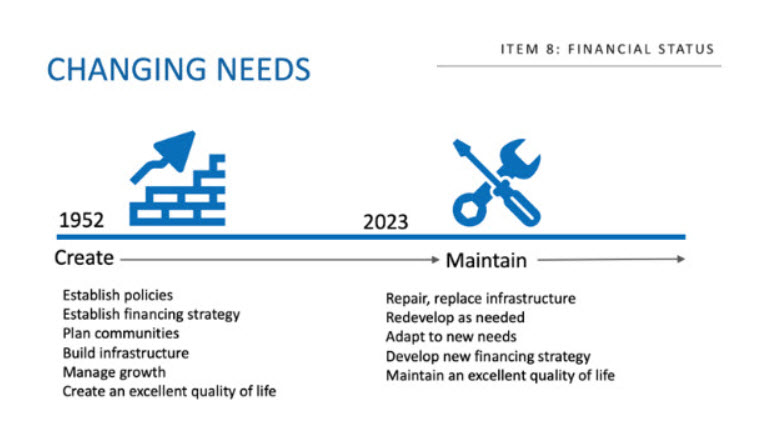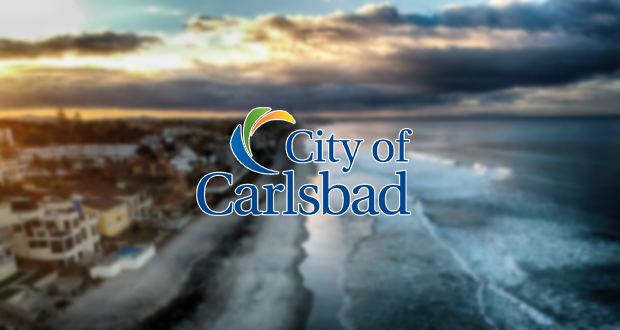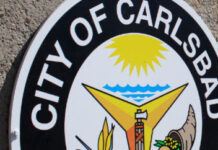Carlsbad’s fiscal year runs July 1 to June 30. Every spring, as city staff finalizes the preliminary budget to be presented to the City Council, we consider not just our immediate financial forecast, but the long term outlook too. On April 4 we shared an update on our long-term projected revenues and expenses with the City Council.
Carlsbad has always been known as a financially healthy city.
Planning ahead is one of the reasons we have been able to maintain a strong fiscal position, even during recessionary times and unanticipated emergencies.
We put money away for ongoing infrastructure maintenance so we don’t face costly repairs later.
The City Council has a robust set of policies that ensure we have money saved for a rainy day, responsibly manage our pension obligations and reinvest any funds left over at the end of the year into community priorities.
As cities move from development mode to maintenance mode, the community’s needs change, as do sources of city revenue. Carlsbad has been approaching this time of life for several years, and we are experiencing these changes.
Developer fees have funded much of the infrastructure and community amenities we have today, including pipes, roads, parks and libraries.
As the pace of development slows, so does the revenue from these fees.
At the same time, our infrastructure is aging, and the cost of maintenance and replacement is significant.
Changing needs financials

The presentation to the City Council focused on four of the most common ways cities close a projected future gap between revenues and costs:
Increase efficiency
Align fees to the actual price of providing services
Reduce staff and services
Develop new sources of revenue
There is no one-size-fits-all solution. Fortunately for Carlsbad, we knew this new stage of life was coming and have the luxury of time to be thoughtful and strategic in how we respond. You are encouraged to read the staff report, which goes into detail on all these issues, or you can watch the presentation and discussion online.
The City Council asked staff to come back with more information about potentially increasing the tax visitors pay when they stay in Carlsbad hotel rooms, timeshares and short-term vacation rentals. The transient occupancy tax, as it is known, is currently 10% in Carlsbad and hasn’t been increased since 1990. Carlsbad voters would need to approve the increase, and the next opportunity to put it on the ballot would be November 2024.
In the meantime, we are preparing to present a balanced budget to the City Council next month for review. We are very proud of our city staff, who have worked hard to reduce spending, find efficiencies and develop new ways to deliver services at a lower cost.


















